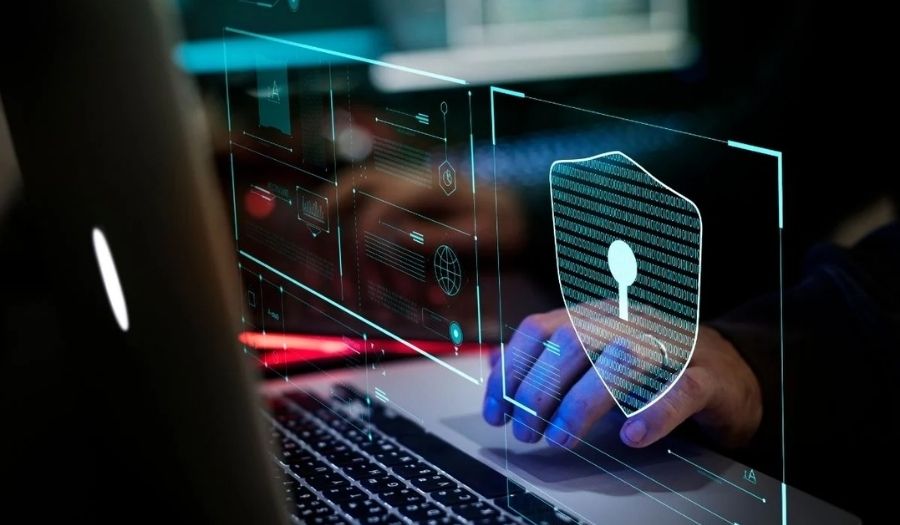
03-10-2024 | Noticias-en, Opinions
On September 26, the regulations governing the supervision of legal entities , in accordance with the provisions of the Law on Economic Crimes , were published in the Official Journal .
Among the most relevant modifications, the figure of supervision of the legal entity was incorporated , which can be ordered by a court as a penalty, precautionary measure or condition of a conditional suspension of the procedure.
In addition, it seeks to ensure that companies that are part of the proceedings establish an effective system for preventing economic crimes.
Among the most relevant aspects for the application of this regulation, there are several elements that are key to the effective functioning of the supervision system for legal entities.
Below we mention the following:
- Definition of supervision of legal person: According to the regulation, supervision of the legal person consists of “ subject to a supervisor, appointed by the court, responsible for ensuring that the legal person effectively develops, implements or improves a crime prevention system within a minimum period of six months and a maximum of two years . ”
- General requirements for the application of the legal entity: The court will appoint a supervisor in those cases where it is determined that the legal entity does not have a crime prevention system , or said system is insufficient to prevent crimes.
- Obligations: The legal entity shall be obliged to make available to the supervisor all the information necessary for the performance of the assignment, including allowing access to its facilities and premises.
In addition, he/she shall be obliged to comply with the instructions given by the supervisor in the development, implementation, improvement or control of the operation of the crime prevention system.
Regarding the role of the supervisor , several key aspects stand out that are fundamental to understanding his role and responsibility within the supervision system of legal entities, among which the following stand out:
- Qualifying requirements to hold the position: The supervisor must be a natural person who meets certain requirements such as:
- Have a relevant professional qualification (professional degree of at least ten semesters in duration).
- At least five years of verifiable experience.
- Knowledge of risk management and crime prevention, and experience in the applicable legal framework.
- In addition, the director must ensure that there are no conflicts of interest or prohibitions or disqualifications that affect the exercise of his or her duties.
- Powers and duties of the supervisor:
- It may issue instructions and set conditions on the legal entity’s crime prevention system, as determined by the court.
- You have the right to access information, facilities and interview personnel necessary to perform your duties.
- Its actions are limited to the prevention of crimes, and it must maintain confidentiality regarding the information obtained, except in public reports.
- In addition, he is considered a public employee for the purposes of his responsibilities.
- Supervisor’s remuneration: The supervisor’s remuneration will be determined by the court according to market criteria and will be the responsibility of the company.
This remuneration will cover all expenses and fees related to supervision, including those of his team.
Candidates will propose their compensation at the appointment hearing, taking into account factors such as the size and complexity of the legal entity, as well as the compensation of similar supervisors and other relevant positions.
For more information on the application of this regulation, we recommend consulting our Compliance group :
Rodrigo Albagli | Partner | ralbagli@az.cl
Yoab Bitran | Compliance group director | ybitran@az.cl
Caterina Ravera | Senior Associate | cravera@az.cl
Sebastian Achondo | Associate | sachondo@az.cl
Loreto Osorio | Associate | losorio@az.cl

23-09-2024 | Noticias-en
Decree No. 749/2024 , which regulates the Large Investment Incentive Regime (RIGI), includes a series of relevant aspects linked to the regulation of competition defense.
– Its article 47, paragraph h) establishes, in line with the provisions of article 176, paragraph h) of Law No. 27,742, that the application for adhesion to the RIGI must include a sworn declaration that the RIGI Project will not distort the local market.
Such statement must be supported by a technical study carried out by a lawyer or economist with technical knowledge in competition defense and must include, as a minimum (i) the description of the product or service to be offered; (ii) the definition and projection of the probable evolution of the relevant market(s); (iii) the identification of the participants in the market(s) under analysis that could be affected by the project and (iv) an analysis of the positive and negative aspects that the projected investment could have in the relevant market.
– Article 52 establishes that failure to include the elements referred to in the preceding paragraph will lead to the rejection in limine of the application for accession.
– Once the technical study has been submitted, the Enforcement Authority may request the National Commission for the Defense of Competition to issue a non-binding opinion.
For more information contact:
Gustavo Papeschi | Partner at Beccar Varela | gpapeschi@beccarvarela.com

10-09-2024 | Noticias-en
On September 10, 2024, Parliament approved the bill for the regulation of virtual assets (the Law), which modifies the current regulations to formally recognize virtual assets, equating them regulatoryly to book-entry securities, and includes Virtual Asset Service Providers (PSAV) within the regulatory and supervisory scope of the Central Bank of Uruguay (BCU).
Below we highlight the most relevant points:
- A new species is added within the genre of scriptural values
The Law modifies article 14 of the Securities Market Law No. 18,627, with the purpose of including virtual assets within the definition of book-entry securities. As of this modification, book-entry securities will be divided into two categories:
- centralized registration (which maintain the current regulations in their entirety); and
- decentralized ledger, a new category that encompasses virtual assets, which are characterized by the absence of a centralized registering entity, since they are issued, stored, transferred and negotiated electronically through distributed ledger technologies.
With the addition of this new class, the rules applicable to book-entry securities will be extended to virtual assets, to the extent that they are compatible with the nature of the latter’s non-centralized registry.
- PSAVs are included within the regulatory and supervisory scope of the BCU
The Law modifies articles 37 and 38 of the Organic Charter of the BCU (Law No. 16,696), with the aim of placing the PSAVs that operate with virtual assets of a financial nature under the control of the Superintendency of Financial Services (SSF).
In addition, the BCU will regulate and supervise the activity of entities that provide virtual asset purchase and sale services, in accordance with the definition it adopts for such purposes.
PSAVs must request authorization from the BCU to operate, which will grant or deny it based on criteria of legality, opportunity and convenience, and may revoke it in the event of serious violations, in addition to establishing the rules for their operation.
- PSAVs are regulated in terms of money laundering and terrorist financing control
The Law also seeks to make the PSAVs subject to the regulatory and supervisory powers of the BCU in the area of money laundering and terrorist financing control for the activities they carry out. This is because the entities included in the second paragraph of article 37 of the Organic Charter of the BCU are also, by legal provision, subject to this type of control.
For more information contact:

Carla Arellano | Ferrere Advisor | carellano@ferrere.com

10-09-2024 | Noticias-en
Today, our personal data is a valuable asset that is constantly circulating on the Internet and we leave a digital footprint that can be used in various ways. Given this situation, Law 1581 emerges as a beacon of protection, establishing a solid legal framework to guarantee our privacy in the digital world.
This Colombian regulation recognizes and protects the fundamental right of all people to know, update and rectify the information that has been collected about them. At the same time, it establishes clear limits on the collection, use and disclosure of personal data, thus avoiding abusive practices such as discrimination and the misuse of our information.
For businesses, Law 1581 represents an opportunity to build relationships of trust with their customers. By complying with this legislation, organizations demonstrate their commitment to transparency and data protection, which in turn strengthens their reputation and brand loyalty.
For further information, contact:

Oscar Tutasaura | Partner Posse Herrera Ruiz | oscar.tutasaura@phrlegal.com

29-07-2024 | Noticias-en
On July 24, the Central Bank of Paraguay (BCP) approved, through resolution No. 12, the “Regulation of the QR Generation Standard for Electronic Payments in Paraguay”. This regulation establishes the requirements for the generation and use of QR codes in electronic payments within the country.
Key aspects of the new regulation
QR Code: A two-dimensional quick response barcode containing information necessary for payment services, which can be scanned, processed and transmitted securely by a device.
Dynamic QR Code : Code presented by the merchant that includes your data to complete the payment and the amount to be paid.
Static QR Code : Code presented by the merchant that includes your details to complete the payment, but not the amount to be paid.
EMV® QRCPS : QR codes developed according to Europay, Mastercard and Visa Common QR standards and guidelines.
Standardization requirements
Dynamic and static QR codes must be based on EMV® QRCPS standards.
QR code generation must follow the guidelines of the PY-QR Code Implementation Guide.
QR codes must include the PY-QR logo.
Requirements for payment service providers (PSPs)
PSPs that use electronic payments with QR code must register with the BCP, in accordance with the instructions and requirements established by the Sub-General Management of Financial Operations (SGGOF). The deadline to comply with these requirements and complete the corresponding registration is June 30, 2025.
The SGGOF will issue the PY-QR code implementation guide, which will cover all transactions related to the generation of QR codes for electronic payments in the country.
For more information
For additional questions or more details on how this Regulation may affect your business, you can contact consultas@ferrere.com.

22-07-2024 | Noticias-en
In June 2024, the U.S. Supreme Court issued two landmark rulings, Securities & Exchange Commission v. Jarkesy and Loper Bright Enterprises v. Raimondo , each of which has broad implications for the powers of the executive branch. While neither decision specifically addressed the powers of agencies focused on national security or foreign policy, such as the Department of Commerce’s Bureau of Industry and Security (BIS) or the Department of the Treasury’s Office of Foreign Assets Control (OFAC), some of the broader language in these decisions could call into question the potential for these agencies, which are often granted broad regulatory deference and sweeping enforcement powers, to suffer an erosion of their authority.
Jarkesy – Let’s Leave Common Law Claims to the Courts, Not the Agencies
On June 27, 2024, the Court issued a decision invalidating the Securities and Exchange Commission’s (SEC) statutory authority to impose civil penalties for fraud violations in a forum outside of a federal court. The case concerned whether the SEC could impose a civil penalty against a defendant accused of fraud through the SEC’s internal administrative forum, rather than in federal court. Although Congress authorized the SEC to do so internally, the Court ruled that the SEC’s civil penalty action implicated the Seventh Amendment to the U.S. Constitution, which provides for a right to a jury trial in “common law suits.” The Court’s decision focused on the fact that civil monetary penalties had traditionally been imposed by common law juries, particularly in cases involving common law fraud.
Jarkesy Exception – Public Rights: Over the past 50 years, the Court has carved out an exception to the Seventh Amendment’s right to trial by jury in cases involving “public rights.” The Court made clear in its opinion in Jarkesy that this exception cannot be allowed to swallow up the general presumption in favor of a right to trial by jury before an Article III court and must be limited to cases analogous to those traditionally excepted from the right to trial by jury, including (but not appearing to be limited to) “the collection of revenue, the enforcement of customs laws, immigration, and the granting of public benefits.” Beyond this list of traditionally excepted “public rights,” the Court did not elaborate on a test for determining whether a claim falls within the public rights exception.
Loper Bright – Ambiguous Statutes Do Not Automatically Imply Deference by Agencies
On June 28, 2024, the Supreme Court issued a ruling that overturned the nearly 40-year-old doctrine known as Chevron deference , which required courts to defer to an executive agency’s reasonable interpretation of ambiguous statutes, even if the Court would have found a different interpretation to be best. Loper Bright reversed Chevron , holding that courts must, in interpreting an ambiguous statute, exercise their “independent judgment” in deciding the proper interpretation of the statute, and may not simply defer to whatever agency interpretation is permissible.
The Court rejected the view that agencies are experts best suited to interpret statutory ambiguities, noting instead that courts can do their “ordinary work” of interpreting statutes “with due respect for the views of the Executive Branch,” which can help inform a court’s judgment. This last point is important: While courts will no longer defer to any “permissible” interpretation of an ambiguous statute, they are still permitted to consider and give great weight to a well-reasoned interpretation of the statute by the agency. The better the agency’s reasoning, the more deference it will be given, and the more likely a court will find its reasoning to be the correct interpretation of an ambiguous statute.
Jarkesy and Loper Bright in the context of national security
Neither Jarkesy nor Loper Bright cited any explicit “national security” or “foreign affairs” exceptions in their respective opinions. Thus, unless challenged, the rulings in those cases may be applicable to agencies that administer and enforce national security-focused regulations, including those in the Treasury and Commerce Departments. Below, we discuss the potential implications of the cases for national security-focused agencies:
Jarkesy, in particular, creates potential limitations on agencies’ enforcement power regarding sanctions, export controls, and anti-money laundering (AML) violations, among others. Enforcement agencies such as OFAC, BIS, the Financial Crimes Enforcement Network (FinCEN), and the Committee on Foreign Investment in the United States (CFIUS) rely on authorities within their regulations to issue civil monetary penalties for potential violations.
OFAC, for example, can take a range of administrative actions pursuant to its regulations, such as unilaterally imposing civil monetary penalties or negotiating settlements with a potential violator of U.S. sanctions. Such broad enforcement mechanisms may leave a potential violator with little bargaining power with national security agencies and also serve to deter private actors from committing future violations.
It is unclear whether Jarkesy’s largely undefined “public rights” exception includes cases involving matters of national security or foreign affairs, particularly in cases involving the administrative imposition of monetary penalties imposed for fraudulent or willful conduct that may have required a jury trial at common law. Practitioners and their clients alike should pay close attention to future lawsuits challenging administrative penalties and, if appropriate, consider challenging such penalties based on the Jarkesy decision.
A potential increase in civil challenges to OFAC, BIS, FinCEN and CFIUS regulations .
Historically, there have been few instances in which private actors have successfully challenged national security agencies’, such as OFAC’s, interpretations of statutes within their area of expertise. Moreover, Loper Bright left intact the Court’s 2019 decision in Kisor v. Wilkie, which held that some deference should be given to an agency’s interpretation of its own ambiguous regulations, provided that the regulations are truly ambiguous and the agency’s interpretation is reasonable and, in fact, a product of its own expertise. Reversing the Chevron doctrine and limiting agency deference could prompt further limitations to the Kisor rule, thereby providing an easier path for potential litigants to challenge national security agencies’ increasingly numerous and complex regulations.
All of this is taking place against the backdrop of a raft of new regulations or notices of proposed rulemaking (NPRMs) issued by the Biden administration regarding technology-related investments to and from China. While such rules and NPRMs could go into effect in the near future, they are likely to face challenges, according to Jarkesy and Loper Bright.
For more information, please contact:
Timothy P. O’Toole, totoole@milchev.com, 202-626-5552
Laura Deegan, ldeegan@milchev.com, 202-626-5942
Caroline J. Watson, cwatson@milchev.com, 202-626-6083
Melissa Burgess, mburgess@milchev.com, 202-626-5914
Manuel Levitt, mlevitt@milchev.com, 202-626-5921
Annie Cho, acho@milchev.com, 202-626-1570






